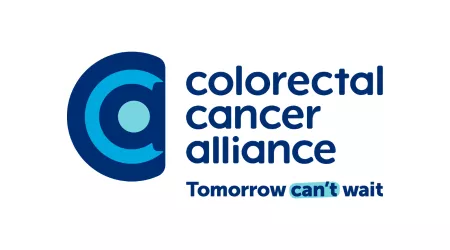
How to apply for SSD benefits with colon cancer

Did you know: If you have been diagnosed with colon cancer and your cancer meets a specific level of severity, you can get Social Security Disability (SSD) benefits through one or both of the Social Security Administration’s (SSA’s) disability programs? It’s true. Check out the information below and post your questions in the comments. We’ll do our best to get them answered!
Meeting the SSA’s Listing
To be found eligible for benefits, your colon cancer must meet the SSA’s listing for the condition, which appears in SSA’s manual of conditions that qualify, known as the Blue Book. The Blue Book is a manual of known disabling conditions and the criteria for each to substantiate the severity level necessary to result in disability.
The colon cancer listing requires that your disease:
- Is an adenocarcinoma that is inoperable, unresectable or has recurred following initial treatment
OR - Is a squamous cell carcinoma of the anus that has recurred after surgical removal
OR - Has metastasized beyond the lymph nodes at the original tumor site
Want more details on listing requirements? Check this out.
Getting Benefits without Meeting the Listing
So what if your colon cancer doesn’t meet the listing for SSD benefits? It’s possible that you could still be found eligible. In order for this to happen, the SSA must determine that your disease and the treatments required for it are so debilitating that you are unable to work in any job for which you would otherwise be qualified.
This process is known as a residual functional capacity (RFC) analysis and requires you and your treating physician both to fill out RFC report forms. In these documents, you and your physician will report to the SSA the type and extent of your daily limitations. The SSA will also utilize the information in your medical records during an RFC analysis.
Getting Approved: The Docs You’ll Need
Whether you meet the SSA’s listing for colon cancer or must proceed through an RFC analysis, the SSA must have substantial medical records in order to determine if you meet the medical eligibility requirements for receiving benefits.
If you’re looking to apply for SSD, be sure to keep these docs as part of your medical records:
- Physical exam notes and diagnostic details used in diagnosing your cancer
- Biopsy results documenting that your colon cancer is a primary cancer and not one that has spread from another area of the body
- Records from periods of hospitalization
- Surgical notes, if tumors have been removed or any other procedures have been done
- Information on the treatments you have undergone and their effects
- Limitations your cancer and your treatments have placed on you
- Details of how your medical condition affects our ability to work and perform other daily tasks
- A detailed statement from your physician reporting the diagnosis, prescribed treatments, the effect of therapy and the prognosis for your condition
I’m Medically Qualified. Now What?
To medically qualify for benefits, you must either meet the listing for the condition in the Blue Book or qualify for an allowance after the SSA establishes your RFC. However, in order to receive benefits, you must also satisfy the financial eligibility criteria. The SSA has two different disability programs: Social Security Disability Insurance (SSDI) and Supplemental Security Income (SSI). In general, SSDI benefits are for meant for those with a strong work history, while SSI is a need-based program that does not take work history into account. For more information on the work credits necessary for SSDI or the income and asset limits for SSI, visit the Official Social Security Website.
Applying for Benefits
You can apply for disability benefits in two ways: through the SSA’s website or in person at your local SSA office. If you apply in person, call (800) 772-1213 to schedule an appointment. Or, start your application online at any time. Either way, beware: the application may take at least four months to proceed through the initial review and you may be denied.
If you are denied benefits, you can file an appeal, though you must do so within 60 days of the date of the denial letter. The first appeal formally requests a second review of your eligibility.
If you are denied again, you must request an appeal hearing before an administrative law judge, again within 60 days of the denial letter date. You may need to proceed through both appeal stages before receiving a final decision on your claim and this can take several months to more than a year.
Helpful Tips
It may be helpful to speak with a lawyer before submitting a claim, especially if you’re not particularly familiar with the SSA’s disability programs. Otherwise, applications may be denied due to missing information. If you decide to go through an appeals process, consulting a lawyer will be hugely instrumental.
To increase your chances of being approved, work closely with your doctor to document your condition. You may also want to seek assistance from a Social Security advocate or attorney that is familiar with claims involving colon cancer.
Top resources
Statement on Court Ruling and Preventive Screenings
A federal judge struck down a provision of the Affordable Care Act (ACA) that requires insurance companies to follow U.S. Preventive Service Task Force (USPSTF) guidelines and cover the cost of certain preventive cancer screenings, including tests for colorectal cancer. If not paused or overturned, millions of people stand to lose insurance coverage for colonoscopy, stool-DNA, FIT, and other tests for colorectal cancer, the second deadliest cancer among men and women combined in the United States.

Colorectal Cancer Alliance Announces 2022 Research Funding Opportunities
The national nonprofit Colorectal Cancer Alliance announced a Request for Proposals (RFP) for innovative translational research.
New Investment Strategy To Accelerate Research Progress
The Colorectal Cancer Alliance announced a transformative research investment strategy to guide the field and its own $30 million in research funding over the next five years.





